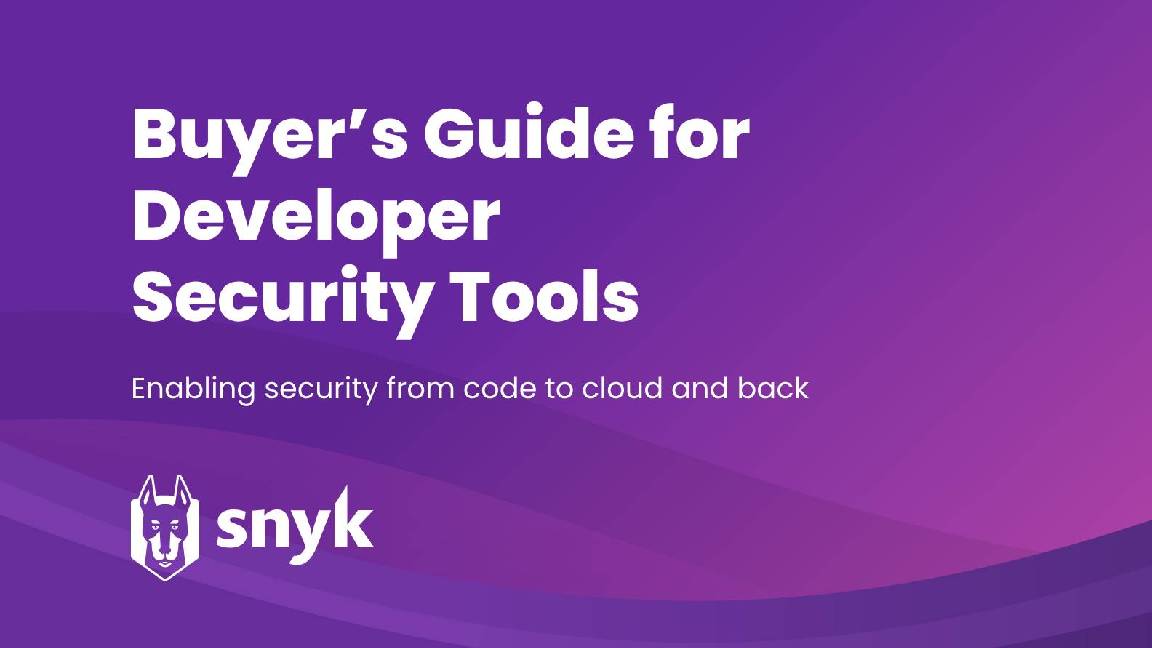"Java is here to stay": Popular programming language to remain on business hit lists in 2024
Java developer recruitment will accelerate in 2024 as firms target greater efficiency and broader toolkits for teams


Businesses plan to ramp up Java developer recruitment in 2024 and beyond, according to new research, with investment in development tools also expected to surge.
The Java Developer Productivity Report from Perforce surveyed 440 people, mostly Java developers, architects, and team leads across 72 countries.
Perforce said the results showed that investment in talent will rise significantly, with nearly two-thirds (60%) of respondents planning to add additional developers in the coming year.
Developer tool budgets also appear to be creeping up despite economic headwinds, the report noted. Nearly half (42%) said their company plans to increase its tool budget and 31% said their annual tool budget (per developer) was $500 or more, marking an increase compared to the year previous.
Only 22% of respondents said they had that much to spend, however, while just 15% said they would be spending more than $1,000 on developer tools.
“Java is here to stay”, said Rod Cope, CTO at Perforce. “These investments in tools and talent are testament to Java’s role as the stable backbone of enterprise applications.”
RELATED WHITEPAPER

A developer security tool to help you find and fix security vulnerabilities in your code before it’s too late
Barry Cranford and Marcin Kruglik from the London Java Community group echoed the sentiment around Java’s continued popularity, adding that it will be “relevant for many years to come”.
Sign up today and you will receive a free copy of our Future Focus 2025 report - the leading guidance on AI, cybersecurity and other IT challenges as per 700+ senior executives
“It is a popular language used by many enterprises,” they told ITPro.
“There are many new languages which are more trendy than Java, but Java is catching up and adding new features every six months, offering at the same time almost 30 years of experience and stability, which are priceless to businesses.
“From a recruitment perspective we are still seeing many companies hiring Java developers within London and within the community.”
Java 21 adoption expected to pick up
In terms of the versions of Java that developers use most frequently, there was something of a split. While 11% of respondents said they had already upgraded to Java 21, which was released in September 2023, 24% of respondents said they were using Java 8 and 18% were using Java 11.
Perforce said it expects adoption of Java 21 to increase as Oracle accelerates the frequency of long-term support JDK versions, from every three years to every two years. This may be a factor in Oracle Java gaining more ground versus generic OpenJDK versions when compared to 2023, it said.
“The burden of upgrading JDKs used to be very large due to large sets of features being released with each subsequent release,” the report said. “Today, many companies realize that it’s much easier to maintain support for the latest version of Java due to a smaller group of features introduced with each release.
“The bottom line is that long-term support and security go hand in hand, and long-term support ensures patches and other enhancements to address novel security threats and protect your business application.”
Respondents were polled on which Java IDEs they were using. IntelliJ IDEA topped the charts with 41% of respondents, as it has done for the last three years.
Eclipse was in second place, used by 23% followed by Microsoft Visual Studio Code (VSCode). The vast majority (84%) of IntelliJ IDEA users said they also used another IDE in their Java development practice, with VSCode the most common choice.
The report said that other parts of the respondents’ Java tech stacks remain steady year-over-year. Over one-third (36%) of respondents said they use Tomcat as the application server for their main application, followed by JBoss/Wildfly (15%), WebLogic (12%), WebSphere (10%), Jetty (10%), and Glassfish/Payara (8%)
Perforce found that while many respondents are using microservices, there was some surprise about the number of microservices that respondents reported using in their applications, with 18% using 11-20 microservices and 23% using more than 21 microservices.
Looking at previous data, Perforce described the number of respondents using 11 or more microservices as “ballooning” from 16% in 2021 to 41% in 2024.
“This data point also suggests microservice bloat as applications get older. Enthusiasm for implementing microservices is often high, but companies find implementation difficult as they slide into miniservices or macroservices inadvertently — or make a conscious decision to revert from microservices entirely,” the report said.
What do Java developers want?
Java developers were asked what they would do with 10% more development time. Sensible answers included adding features (26%) and improving test coverage (18%), but write-in answers also included “drink coffee” and “remove technical debt”.
One way to get that extra time might be through finding new tools and workflows to optimize development strategies. While 43% of respondents revealed investigating and implementing tools is up to individual efforts, almost as many (42%) said their organizations use productivity teams to research options to boost productivity.
“These teams investigate solutions and test workflows so developers can concentrate on writing code — and pay dividends as development environments become increasingly more complex,” said Cope, adding that he expects the number of such teams to skyrocket.
According to Stack Overflow’s 2023 developer survey, Java is the seventh most popular programming language overall and the fifth most popular programming language with learners.
Tiobe’s list of the most popular programming languages currently ranks Java at number four (behind Python, C, and C++).
A Java developer in the UK can expect an average salary of around £61,000 according to Indeed.com, but analysis by recruitment firm Reed shows salaries can range as high as £86,000.
Steve Ranger is an award-winning reporter and editor who writes about technology and business. Previously he was the editorial director at ZDNET and the editor of silicon.com.


